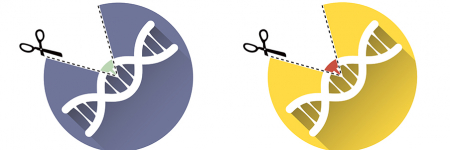Blog articles

World first with genome edited inside patient’s body
Experimental procedure has potential for treating several metabolic disorders, but the long-term risks are yet to be fully understood

Ethical editing: therapeutics and ‘enhancement’
A newly published report takes a different approach towards the controversial editing of human genomes

How genome editing could enter mainstream medicine
Forget designer babies and novelty pets. The potential for genome editing to improve the health of the general population is already emerging

Genomics in government policy
How do we bring exciting research, exceptional medicine and public opinion to routine clinical practice?

The first ‘three-parent baby’ – of many?
Birth of baby boy with DNA from three parents puts ethical debate on mitochondrial transfer technique back in the spotlight

Gene editing meets gene therapy
Despite continued ethical debate, latest advances in gene editing technologies are poised to transform patient treatment

Prospects for an artificial human genome project
Could synthetic biology provide the next chapter in our ‘understanding of the blueprint of life’?

Shooting the messenger: therapeutic targeting of RNA
As scientists learn more about the crucial role of ‘messenger’ molecules, many see effective targeting as the missing link in our treatment of disease

Human gene editing: where do we draw the line?
Advancements in our ability to alter the human genome have sparked fresh debate over ‘designer babies’ and health ethics

Epigenetics – the real key to everything?
It isn't all in the code. Gene alterations play a part in disease, but gene expression may ultimately prove equally - if not more - important

Genomic damage and repair: prize-winners and pioneers
Since Albert Kelner shone a light on the process of DNA repair in 1948, scientists have been working to harness the power of correction

Huntington disease and the potential of gene silencing
Will genomic therapy be the key to treating one of the UK's most devastating degenerative diseases?


